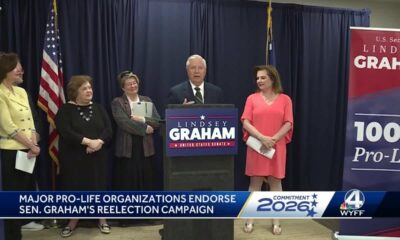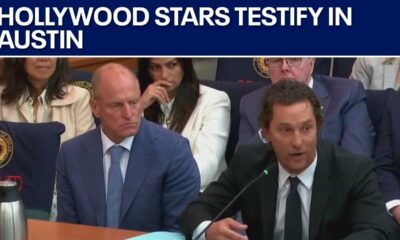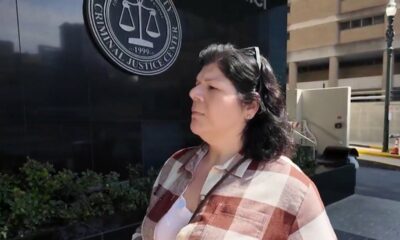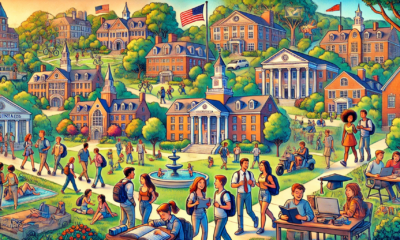News from the South - Missouri News Feed
Police wives step up to support several police officer families
SUMMARY: The St. Louis Police Wives Association provides essential support to families of local police officers during crises, such as injuries or deaths in the line of duty. Recently, they assisted families of two officers: one who was killed and another fighting for his life in the hospital. The association offers meals, clothing, school supplies, and emotional support. Former president Barbara O’Connor and families affected by these tragedies discussed their experiences, highlighting the critical role the organization plays in providing comfort and resources during incredibly tough times, showcasing the strength of community support.

Police wives step up to support several police officer families
News from the South - Missouri News Feed
Ballot language for Missouri anti-abortion amendment doesn’t mention abortion ban
by Anna Spoerre, Missouri Independent
March 31, 2025
A revamped constitutional amendment moving forward in the Missouri House would ban nearly all abortions in Missouri. But most voters likely wouldn’t know that just by reading the drafted ballot language.
The Republican-backed amendment, if passed out of the legislature and approved by voters, would outlaw abortion with limited exceptions for medical emergencies and survivors of rape and incest prior to 12 weeks gestation.
The amendment seeks to overturn an abortion-rights amendment approved by voters in November that legalize abortions up until the point of fetal viability. This made Missouri the first state to overturn an abortion ban after lawmakers enacted a trigger law in 2022 that banned the procedure with exceptions only for medical emergencies.
While the proposed ballot language would ask voters if they want to repeal Article I, Section 36 of the constitution —the current abortion-rights amendment — it does not directly ask voters if they want to ban or outlaw most abortions.
Instead, it would ask voters if they want to “guarantee access to care for medical emergencies, ectopic pregnancies, and miscarriages,” a right that is already guaranteed under the current constitutional amendment.
Missourians would also be asked if they want to “ensure women’s safety during abortion,” “ensure parental consent for minors,” allow abortions for medical emergencies, fetal anomalies, rape and incest” and “protect children from gender transitions.”
If approved by both the House and Senate, Missourians could be asked to weigh in on reinstating an abortion ban as soon as a special election the governor could call this year, or during the 2026 midterm election.
The legislation approved by a House committee Monday, is the second iteration of legislation filed by state Rep. Melanie Stinnett, a Republican from Springfield.
Stinnett’s initial language included a criticized police reporting requirement for survivors of sexual violence. Two out of every three sexual assaults are not reported to police, according to the Rape, Abuse and Incest National Network and the Bureau of Justice Statistics.
That requirement was removed in Monday’s version.
Missouri health department rejects Planned Parenthood plan to start medication abortions
On Thursday, House Speaker Jon Patterson, a Republican from Lee’s Summit, said while he anticipates the GOP will continue to refine the exact language to put before voters, he doesn’t foresee the rape and incest exceptions being cut out in later debate.
“That’s something that the people spoke on,” Patterson said. “That’s something that all the legislators recognize is something that we have to keep.”
The new legislation, like its predecessor, proposes a ban on gender-affirming health care for minors. It also seeks to reinstate state regulations on abortion providers and facilities, including admitting privileges at a local hospital, licensing requirements and inspections.
The amendment would allow abortions in cases of fetal anomaly, which the legislation defines as “a structural or functional abnormality in the unborn child’s gestational development that would make life outside the womb impossible.”
The bill specifies that this would include ectopic pregnancies but exclude a fetal diagnosis of a disability.
State Rep. Raychel Proudie, a Democrat from Ferguson, raised concerns with this language on Monday. She questioned how the amendment would apply to a fetal diagnosis where a newborn could survive birth, but would die shortly after, including in cases of anencephaly, a fetal birth defect in which part of the brain or skull don’t develop properly.
The new proposal also looks to require that any legal challenges to the state law around reproductive health care be heard in Cole County.
After the abortion-rights amendment passed in November, Planned Parenthood and the ACLU of Missouri sued the state, arguing several abortion regulations on the books were now unconstitutional. That case is being tried in Jackson County, where one of the state’s several Planned Parenthood clinics is located.
Missouri Attorney General Andrew Bailey has been unable to convince the judge to move the case to Cole County, where a judge last year attempted to remove the abortion-rights amendment from the ballot.
During Monday’s hearing, state Rep. Pattie Mansur, a Democrat from Kansas City, said she found it noteworthy that in Missouri, a 17-year-old girl could be legally married but would still need permission from her parents for an abortion.
The House Committee on Children and Families previously spent four hours debating the initial bill, including testimony from Missourians who accused lawmakers of attempting to overturn the will of the people.
Republicans have continued to defend their decision to spend much of the legislative session on an abortion amendment by arguing that Missourians were misinformed on what they were voting on in November — a reasoning that continues to draw fury from abortion-right supporters both in the legislature and in their districts.
“The most disappointing piece of that is the Republican’s consistent insistence on defying the will of the voters in this state,” House Minority Leader Ashley Aune, a Democrat from Kansas City, told reporters last week. “Whether it’s on abortion or paid sick leave and minimum wage, the first order of business this year has been to undo what Missourians went to the ballot box to vote for.”
Aune also took notice of how late into session the proposed amendment was making its way out of committee.
“It seems to me that the reason this has been slow rolled is that there simply is not consensus on the other side of the aisle on what language to end up with, how far to go or not, what they think that they can get passed by the voters or not,” Aune said Thursday. “That is likely causing a lot of contention in their caucus right now, and I’m not mad about that.”
But there didn’t seem to be much disagreement come Monday between GOP members of the House Committee on Children and Families who passed the revised language after just a few minutes of discussion.
“It was time to get this moving,” state Rep. Holly Jones, a Republican from Eureka who chairs the committee, told her colleagues Monday.
The Senate version of the legislation, sponsored by state Sen. Adam Schnelting, a Republican from St Charles, passed out of committee in early March but has yet to be heard on the Senate floor.
Abortion within the state remains out of reach for many Missourians, despite voters in November codifying the right to reproductive health care in the state constitution.
This includes the most common type of abortion. Medication abortions remain inaccessible through Planned Parenthood in Missouri after the state rejected complication plans submitted by the clinics outlining continued care for patients in the case they had any adverse effects from the medication.
The rejection notice sent by the Missouri Department of Health and Senior Services was based on criteria set in an emergency rule published Thursday by the Missouri Secretary of State’s Office that included a requirement that clinics must provide the names of any physicians who prescribe abortion medication.
In response, Planned Parenthood on Friday filed a motion asking that a Jackson County judge block the state statute that requires the clinics submit an abortion medication plan. As of Monday, three Planned Parenthood clinics — in Kansas City, Columbia and St. Louis — had started seeing some patients for procedural abortions again.
YOU MAKE OUR WORK POSSIBLE.
Missouri Independent is part of States Newsroom, a nonprofit news network supported by grants and a coalition of donors as a 501c(3) public charity. Missouri Independent maintains editorial independence. Contact Editor Jason Hancock for questions: info@missouriindependent.com.
The post Ballot language for Missouri anti-abortion amendment doesn’t mention abortion ban appeared first on missouriindependent.com
News from the South - Missouri News Feed
2nd Annual Adult Spelling Bee
SUMMARY: The 2nd Annual Adult Spelling Bee is set for Saturday night, bringing together area celebrities for a fun and competitive event. Participants are encouraged to dress in high school-themed attire, and the event features a special menu, including mocktails and school lunch-style food. Tickets are $20, which covers dinner and a chance to enjoy the festivities at 3015 Locust in Midtown. The evening promises a lively atmosphere with a photo booth and spelling challenges, with proceeds benefiting the winner’s charity of choice. Doors open at 6:45 PM, and tickets can be purchased at workandleisureSTL.com.

Work & Leisure’s Raven Weinrich and Jordan Renaud joined the morning show to preview the 2nd Annual Adult Spelling Bee happening on April 5 at 3015 Locust Street in Midtown.
News from the South - Missouri News Feed
Bill regulating video gambling faces hazy future with weeks left in Missouri’s legislative session
by Rudi Keller, Missouri Independent
March 31, 2025
A bill to authorize video gambling machines commissioned by the Missouri Lottery got off to a fast start in the Missouri House, clearing a committee just 12 days after it was introduced in late January.
The bill then stalled on the next step, and a month passed before the House Rules-Legislative Committee approved it for placement on the calendar for debate. Now, as April is about to begin and lawmakers have only seven weeks to complete their work, it is uncertain whether that debate will take place.
The bill has the backing of House Speaker Jon Patterson of Lee’s Summit, but he’s not sure the rest of the GOP caucus is ready to follow him.
“It’s a matter of, do we have a majority of the people in the chamber that feel the same way?” Patterson said Thursday at the weekly House Republican news conference. “That I don’t know.”
For more than five years there have been legislative efforts, ultimately unsuccessful, to expand legal gambling through video lottery games and sports wagering — and to shut down unregulated games offering cash prizes that can be found in bars, truck stops and convenience stores across the state.
The proliferation of what are called gray market machines is one of the best arguments for authorizing video lottery games, Patterson said.
“If people are doing it, I would rather have them regulated and taxed and to make sure that kids aren’t doing it,” he said. “So I’m in favor of the bill itself.”
The legislation sponsored by state Rep. Bill Hardwick, a Republican from Dixon, has been revised since it was introduced and another major revision is awaiting action on the House floor. To win votes, an amendment Hardwick intends to propose would cut the number of machines allowed at each location to eight and add provisions allowing local governments — cities for incorporated areas, counties for unincorporated locations — to conduct votes on whether to allow video lottery terminals.
He also removed all provisions of the bill that would have eliminated the gray market machines. Instead of phasing them out six months after video lottery is launched, retailers could keep them if they prefer rather than become lottery outlets.
They could not have both.
Last week, Hardwick had a pad of lined paper in hand, going from member to member on the floor to see if he had enough votes.
“I think that we can pass it out of the House,” Hardwick said. “I think that we should pass it out of the House.”
The best argument he has for the bill, Hardwick said, is its potential to produce revenue for state education programs. Gov. Mike Kehoe didn’t recommend a $300 million increase in the state public school formula that would fully fund the program, calling it too expensive.
According to the fiscal note, video lottery would produce $112 million in the first year and almost $350 million a year when fully operational.
There is a substantial surplus currently in the state general revenue fund, but revenues are not growing and the Republican majority wants to cut state income taxes.
“A lot of my members are thinking about the fact that the state’s going to have some tough budget times ahead, and by making a few regulatory and structural changes, we could change revenues without raising taxes on people,” Hardwick said.
For several years, the issue of gambling was a triangular debate.
Casino companies and professional sports teams eager for the revenue from sports wagering opposed the video game vendors pushing for the new form of lottery game. Both were opposed at times by lobbyists for Torch Electronics, the largest of the gray market operators and a prolific political giver.
Torch didn’t want any bill that would make the law clear on the legality of its games.
It has been active both in the legislative halls and the courtroom, where it unsuccessfully sued the Missouri State Highway Patrol to block criminal investigations of its machines.
A representative of Torch declined to comment on the revised bill.
A campaign organized by major sports teams and bankrolled by online betting platforms in November won approval of sports betting for Missouri. While that issue is off the table, casinos aren’t backing down from their opposition to video lottery games.
The number of people visiting Missouri’s 13 casinos in the final six months of 2024 was down 25% from the same period of 2019, which is about the time the unregulated machines were making their debut. The remaining casino gamblers are each losing more, on average, and net winnings for the casinos have gone up 8% in that same period.
What the figures say is that small-dollar players are choosing to play the unregulated machines, said Michael Winter of the Missouri Gaming Association.
The association considers the unregulated machines to be criminal gambling devices and the proposal for video lottery to be unconstitutional. The only place slot machines are legal, he said, is in the 13 casinos licensed by the Missouri Gaming Commission.
“I don’t think the market has stopped growing when you look at either illegals or the potential that putting in more slot machines than every location around the state could have on our properties,” Winter said. “So we think there’s still more downside and revenue we could lose if bills like this are passed.”
The bill’s controls on improper play, such as by people under 21, are too loose, Winter said.
“They don’t have set aside rooms,” he said. “They don’t have licensed personnel overseeing the machine. You’ve got a person at the counter who’s in charge of making sure that only 21-year-olds play the machines.”
The changes in Hardwick’s proposed amendment are essential to winning passage, said Andy Arnold, a lobbyist for J & J Ventures, a vendor for video lottery games.
He thinks a bipartisan majority of the House can be assembled to pass the bill, but it would be close. To get to the Senate, a bill must win 82 votes from the 163-member House.
A provision that requires the games to be in a place “distinct and divided from the primary business operation area” was important to calming fears that minors may be playing the games.
Arnold has been working to get video lottery legalized for 10 years. The arguments from the casinos are more about market share than legality, he said.
“It’s just a matter of time before people see through and see that it’s nothing more than competition,” Arnold said. “They don’t want the competition. But they’ve already got the competition from the illegal machines.”
GET THE MORNING HEADLINES.
Missouri Independent is part of States Newsroom, a nonprofit news network supported by grants and a coalition of donors as a 501c(3) public charity. Missouri Independent maintains editorial independence. Contact Editor Jason Hancock for questions: info@missouriindependent.com.
The post Bill regulating video gambling faces hazy future with weeks left in Missouri’s legislative session appeared first on missouriindependent.com
-

 News from the South - Florida News Feed5 days ago
News from the South - Florida News Feed5 days agoFamily mourns death of 10-year-old Xavier Williams
-

 News from the South - Alabama News Feed6 days ago
News from the South - Alabama News Feed6 days ago1 Dead, Officer and Bystander Hurt in Shootout | March 25, 2025 | News 19 at 9 p.m.
-

 News from the South - Arkansas News Feed7 days ago
News from the South - Arkansas News Feed7 days agoReport: Proposed Medicaid, SNAP cuts would cost Arkansas thousands of jobs, $1B in GDP
-

 News from the South - North Carolina News Feed7 days ago
News from the South - North Carolina News Feed7 days agoClassmates remember college student hit by car, killed near NC State
-

 News from the South - Alabama News Feed4 days ago
News from the South - Alabama News Feed4 days agoSevere storms will impact Alabama this weekend. Damaging winds, hail, and a tornado threat are al…
-

 News from the South - Alabama News Feed3 days ago
News from the South - Alabama News Feed3 days agoUniversity of Alabama student detained by ICE moved to Louisiana
-

 News from the South - Oklahoma News Feed7 days ago
News from the South - Oklahoma News Feed7 days agoRep. Tom Cole Says DOGE Is ‘Pretty Responsive’ to His Concerns
-

 News from the South - Virginia News Feed7 days ago
News from the South - Virginia News Feed7 days agoVa. community colleges end diversity, equity and inclusion practices








































